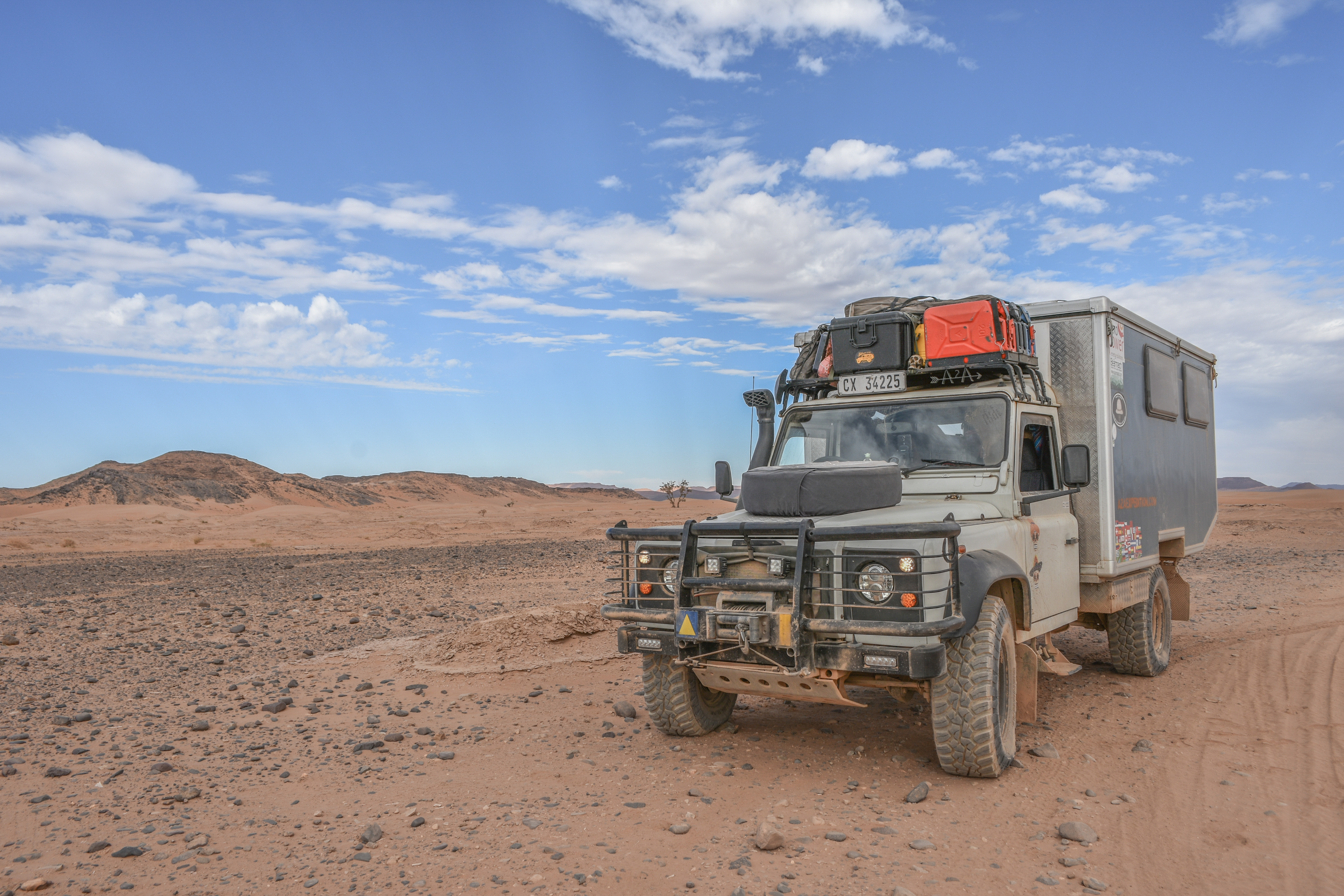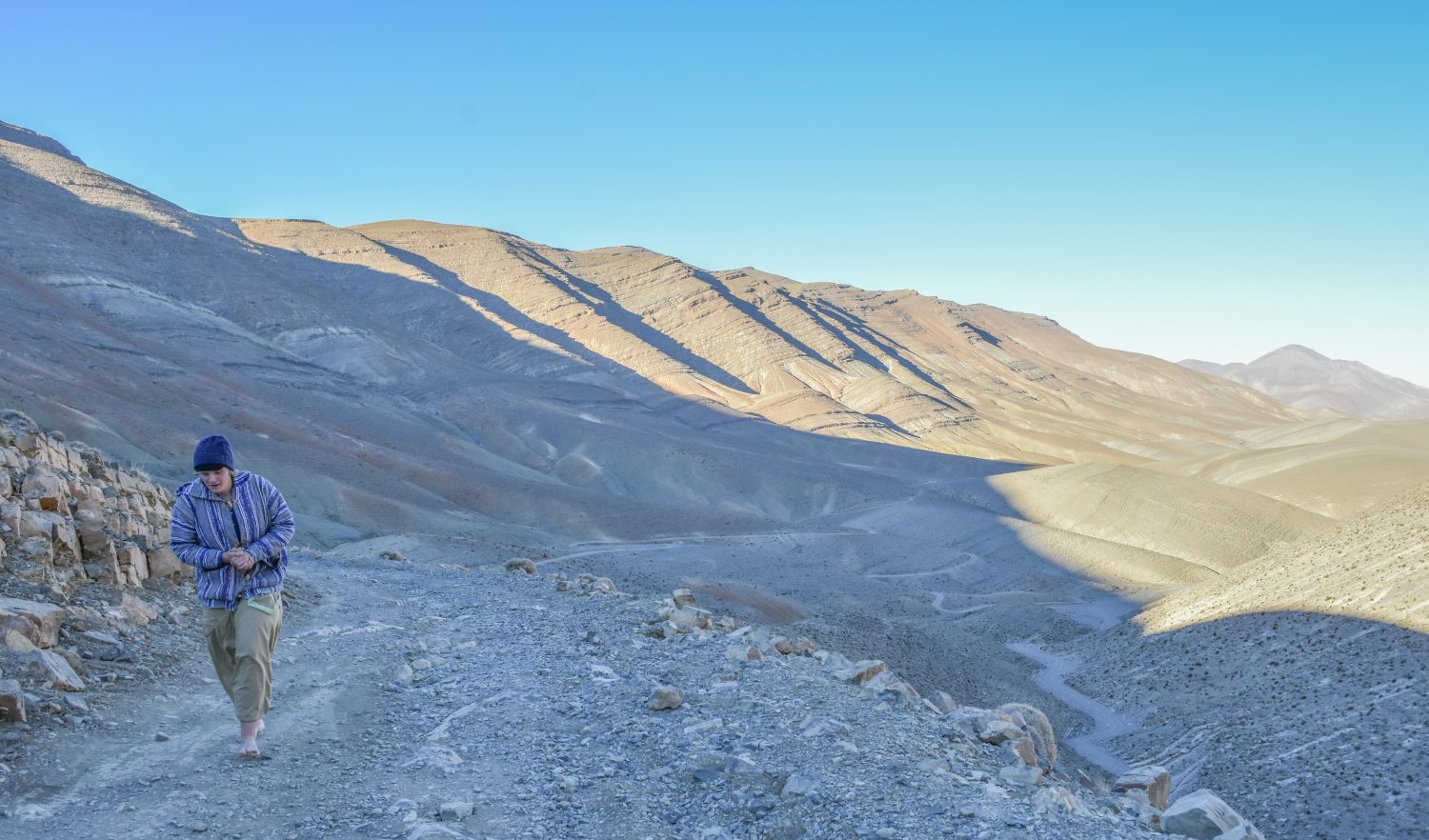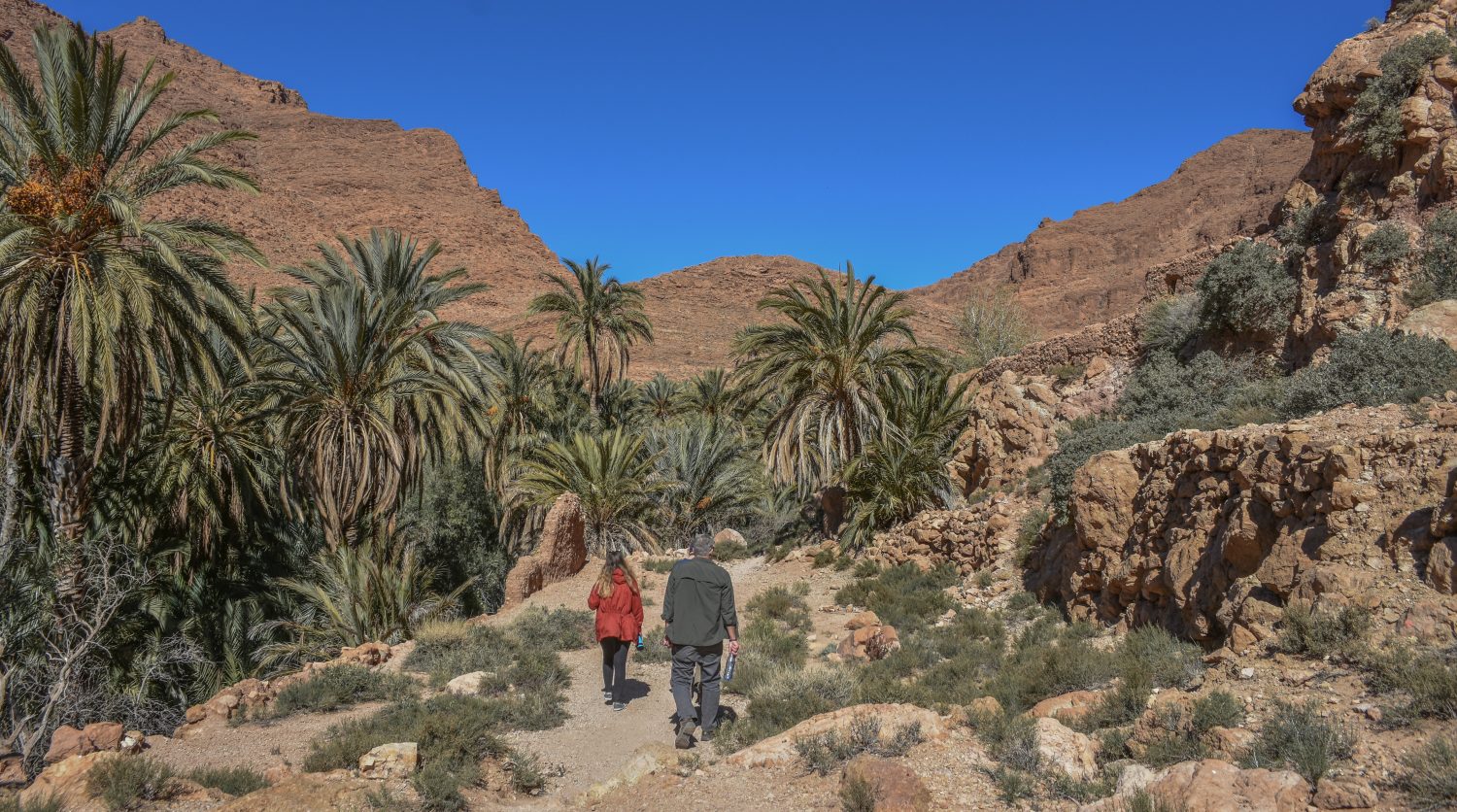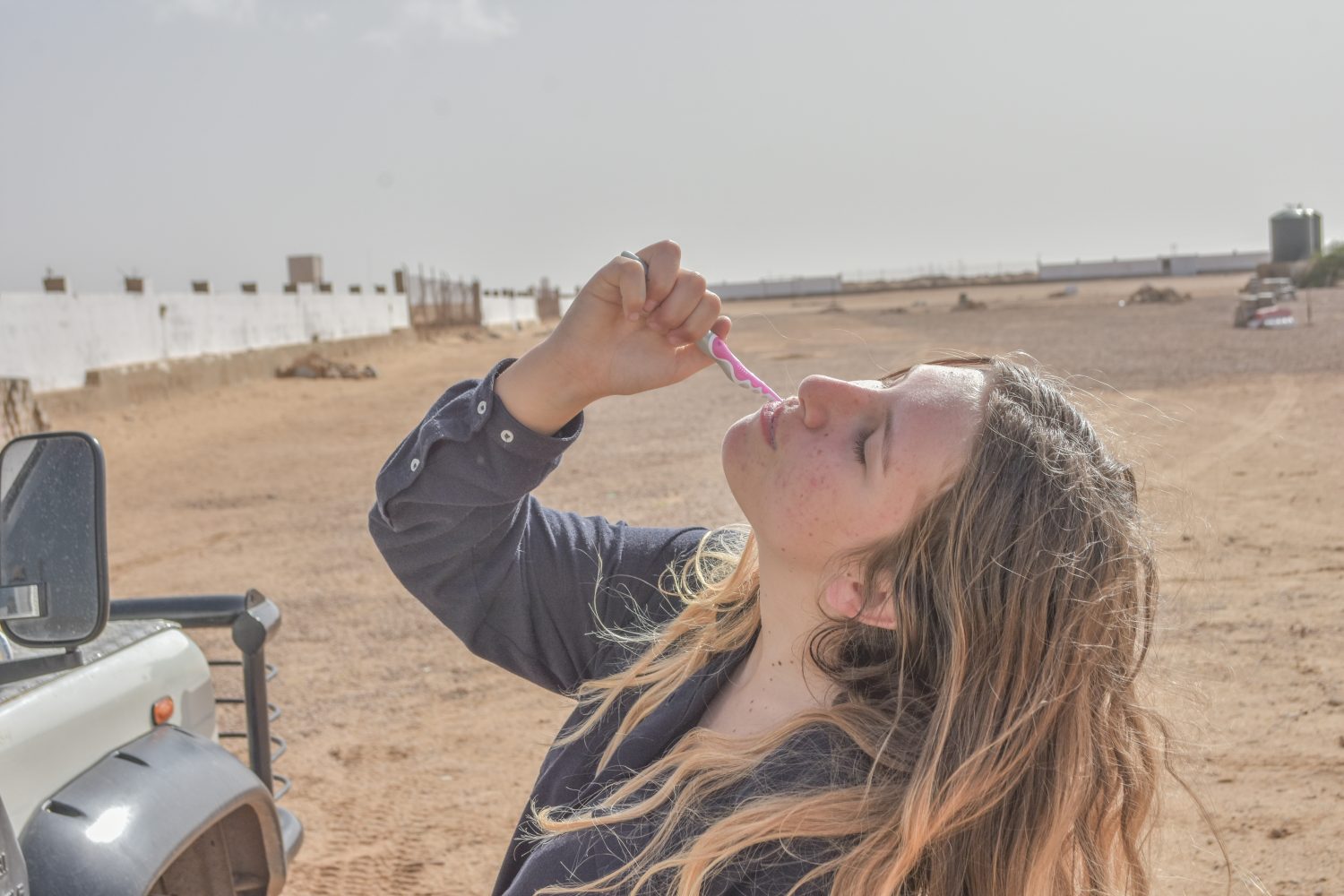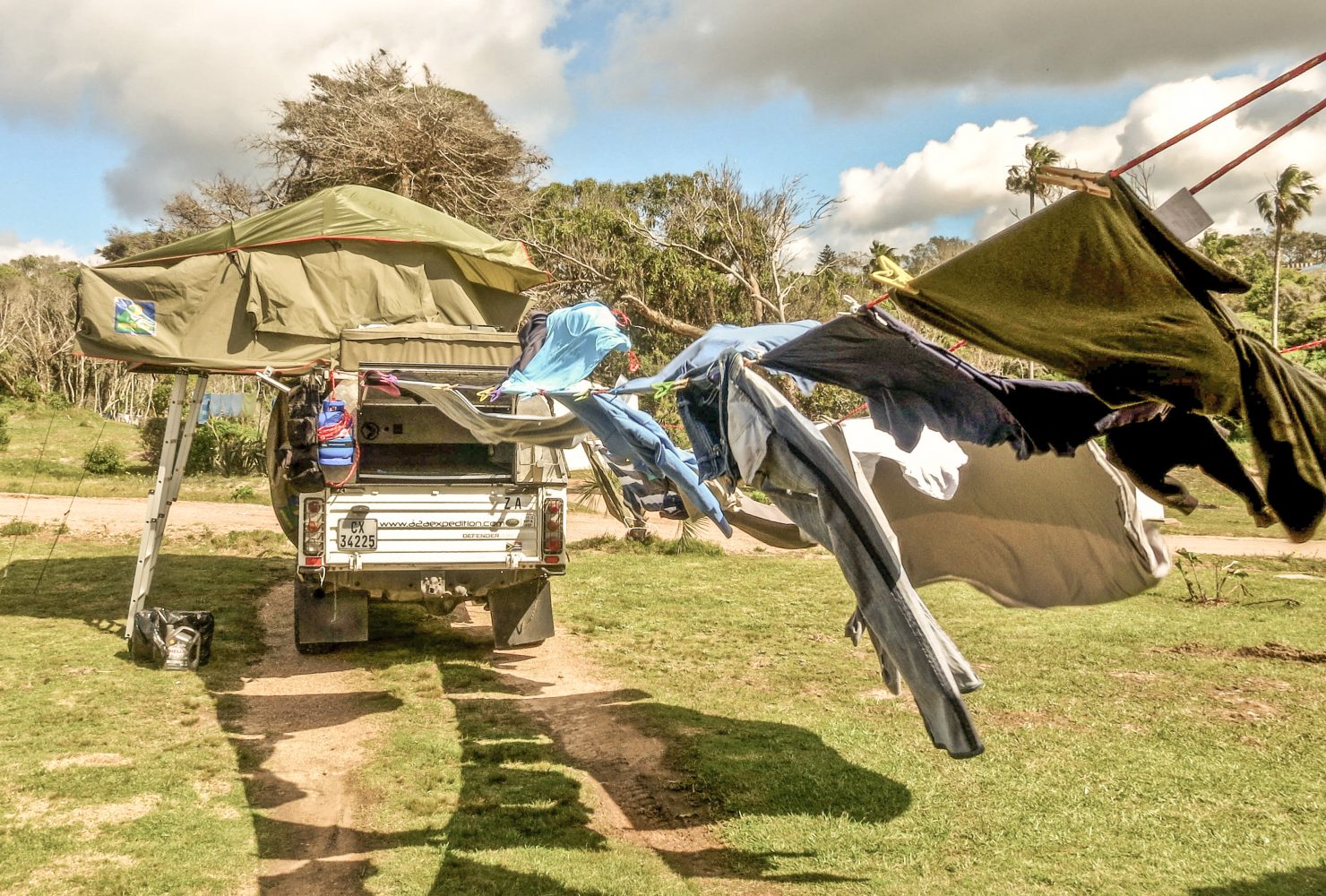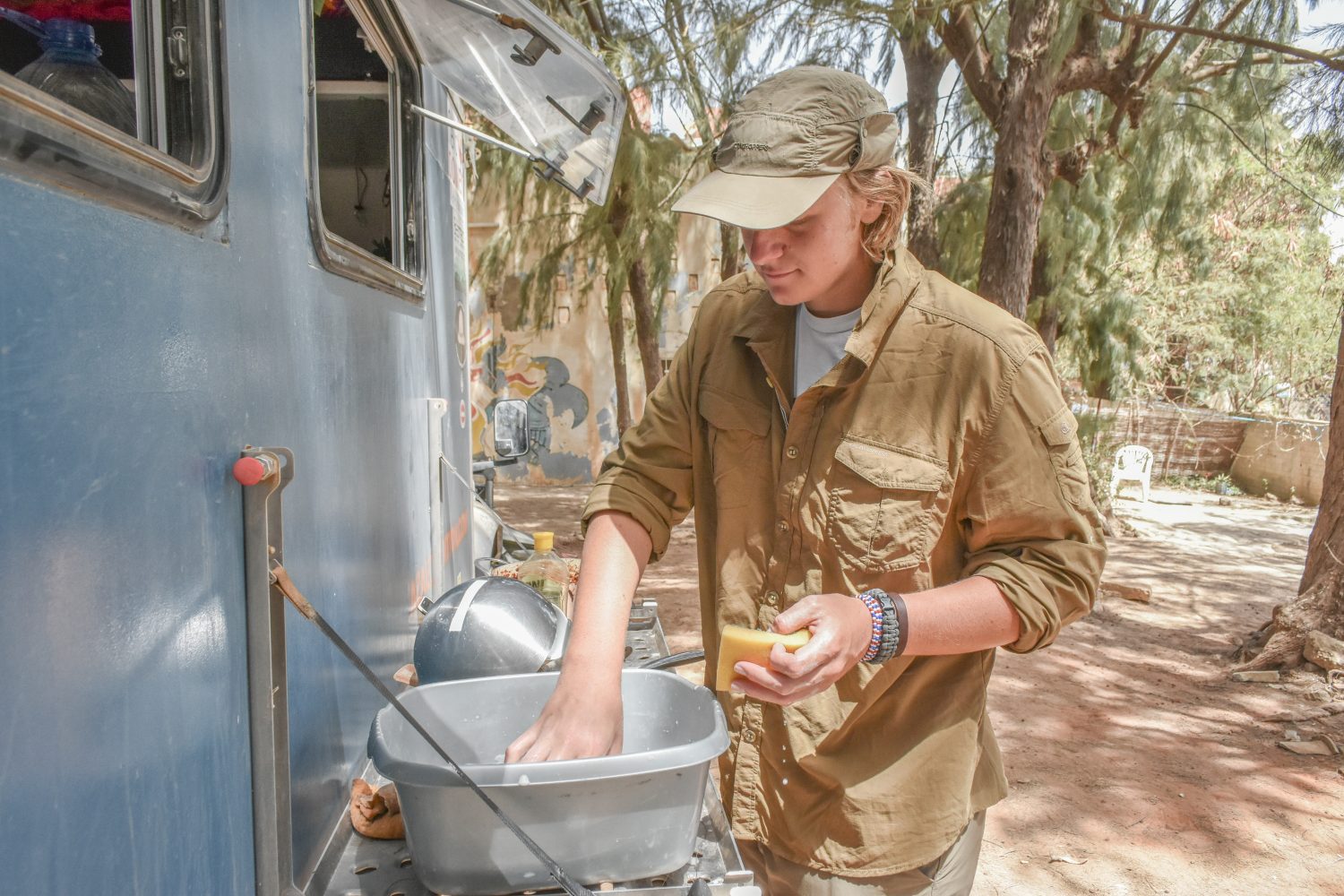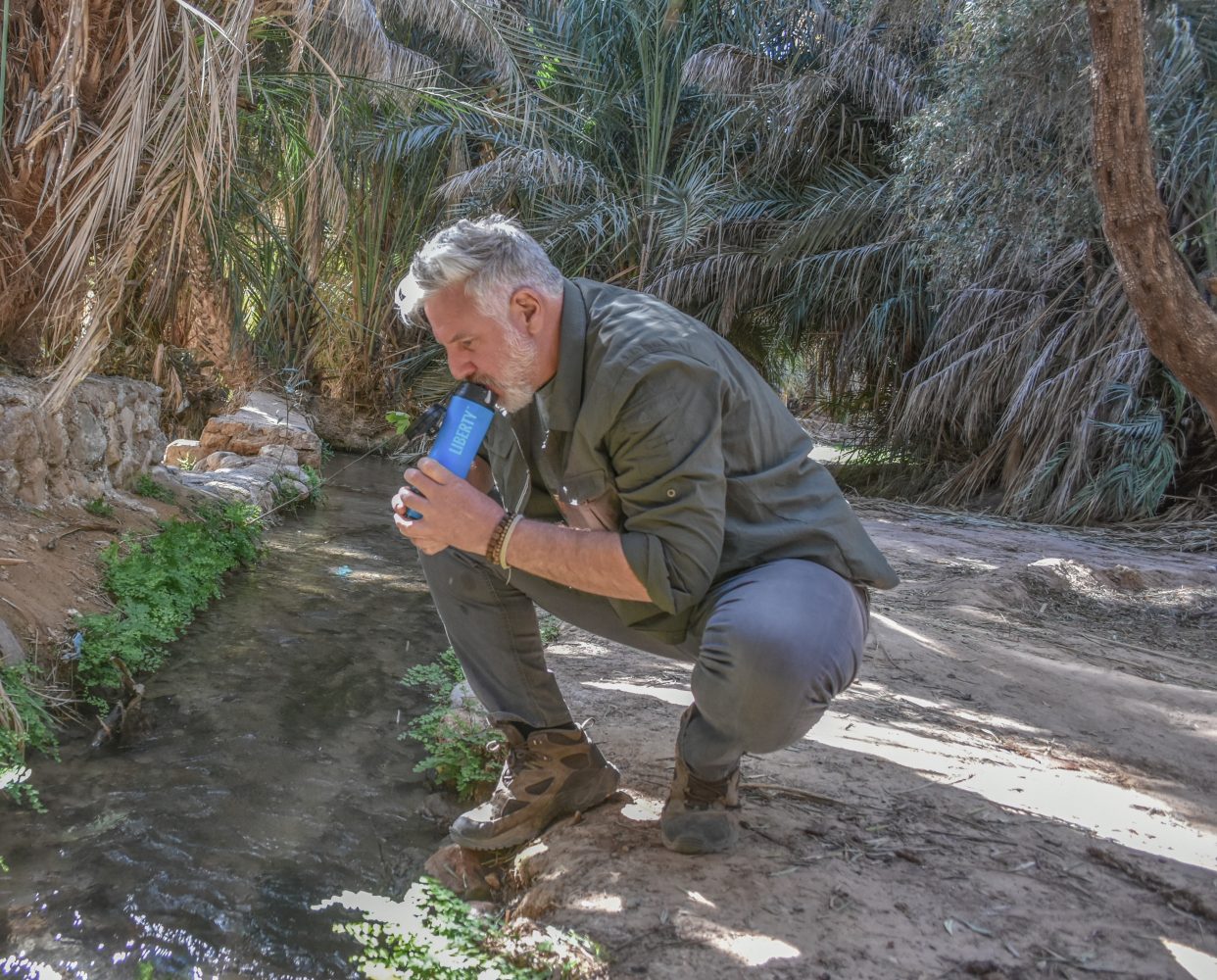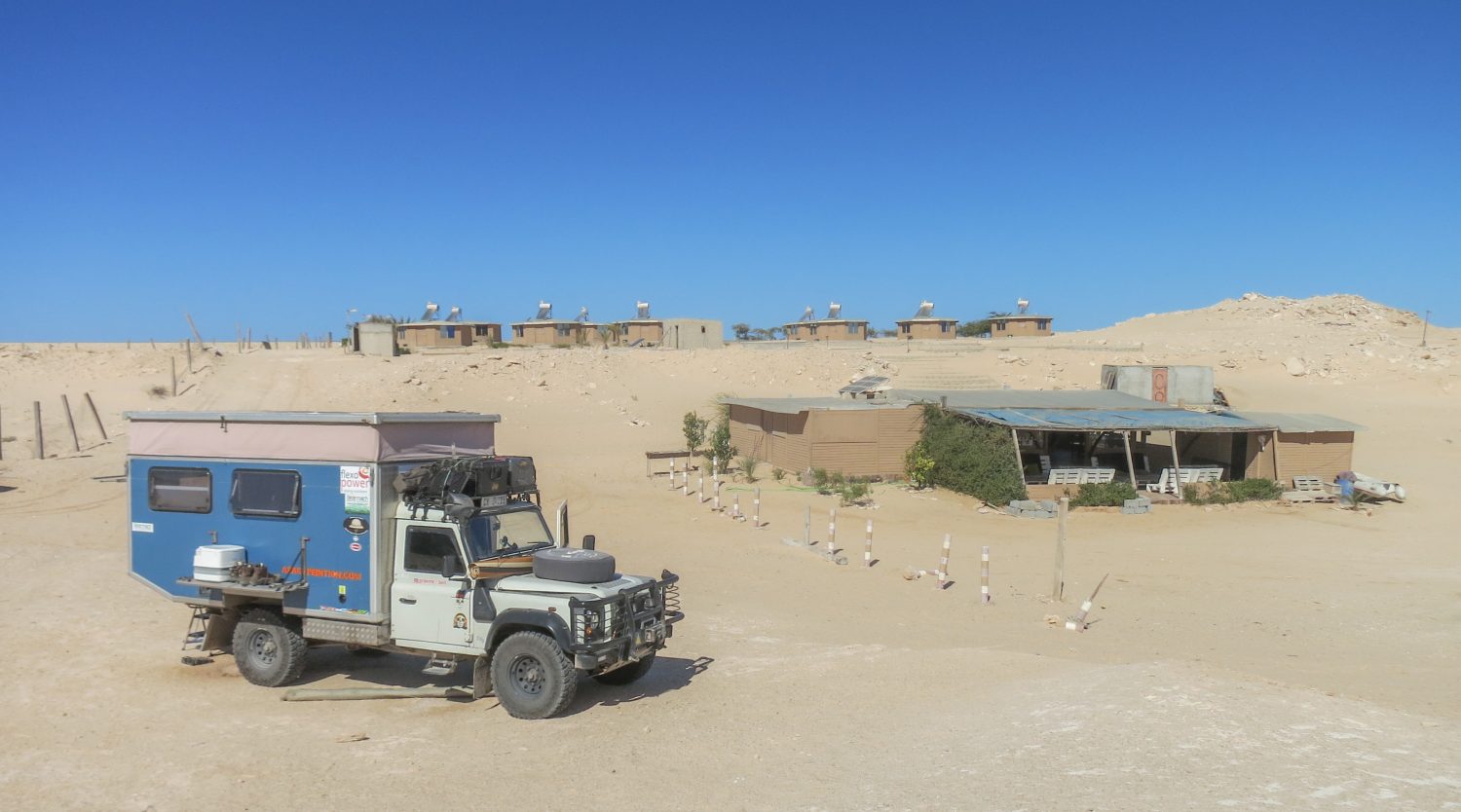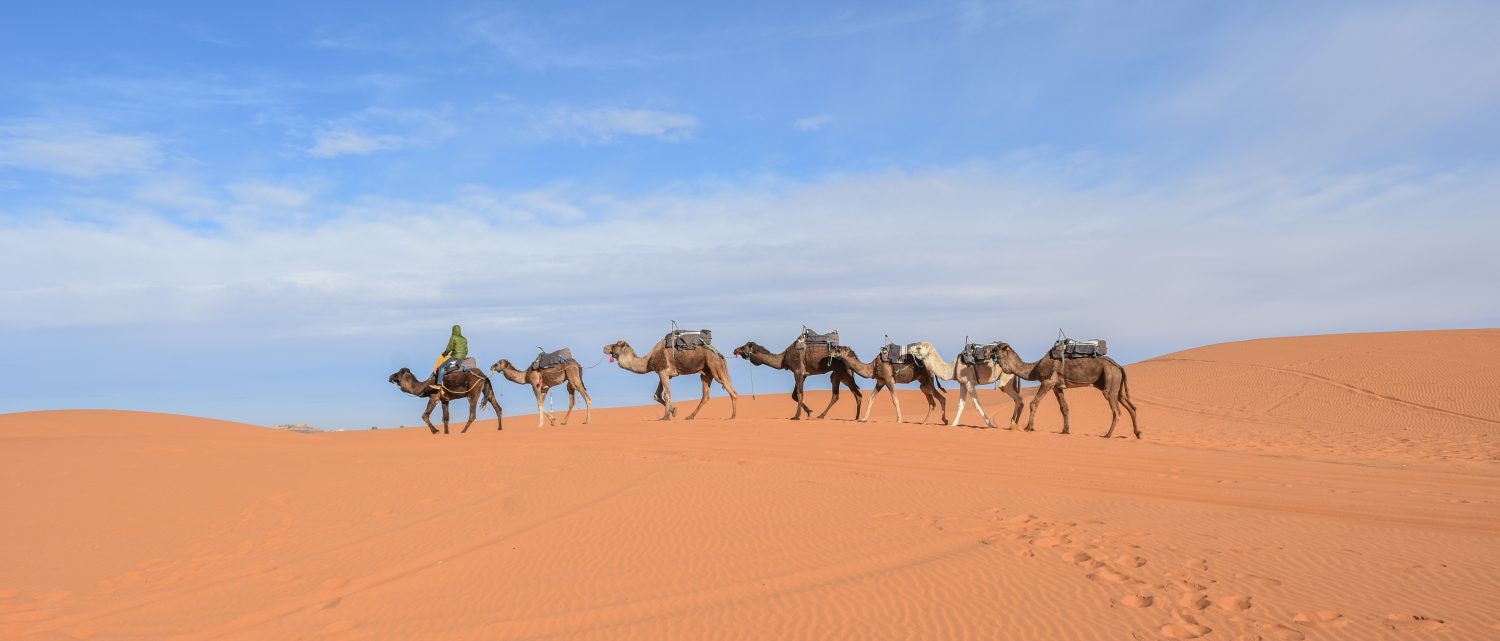In mid-November 2013, we drove our Land Rover Defender from Arequipa to Cuzco, Peru. Well, that was the plan. At roughly 15,500 meters on the desolate, lifeless altiplano the engine management system beeped a loud warning: we were losing a lot of coolant. After a few minutes spent diagnosing the problem, we replaced the coolant cap with a spare (suspecting that the cap was faulty) and filled the header tank with coolant. After driving five minutes more, the management system beeped—again the cooling system was losing large quantities of fluid, but we soon ran out of coolant and had to revert to our water supplies. Over the next five hours, we limped towards the town of Chivay, stopping every five minutes to fill the header tank with precious drinking water until not a drop was left of our reserves. Long after dark, with the mercury below freezing, we rolled down into town and immediately sought a drink of water; we were tired, cold and dehydrated.
Six years later we are still on the road, but we have learned many valuable lessons. Running out of water can be either a simple inconvenience, a difficulty, or potentially life-threatening; we always consistently top up or fill the tanks when possible and always carry a jerry can of emergency water as well as a jerry can of diesel.
Here are a few suggestions for managing your water resources while on the road.
1. Separate your uses for water.
Drinking and washing are the two primary uses of water. Drinking water needs to be filtered and clean while washing water needs only to be relatively clean and stored separately from the valuable drinking water.
2. Use a water cup.
It is often quite difficult for those of us who were raised in homes with indoor plumbing to comprehend that water can be a finite resource. How many of us leave the water running while we brush our teeth? Too many. You cannot treat the water supply in your rig like a faucet connected to a municipal water line.
Filling a five-ounce water cup will ensure that you use exactly the amount you need, no more and no less; a cupful is enough to brush your teeth, wet your hair, and wash your face every morning and evening.
3. Carry enough water, but not too much.
We now carry 35 gallons of water for a family of four. That water is spread between a 5-gallon external jerry can, a 5-gallon Lifesaver filter jerry can, and two 15-gallon internal tanks. This is enough water for up to a week if managed well. It is particularly important to fill up the tanks before heading out on remote trails, but not always necessary to carry that extra weight in urban environments.
And, yes, you can carry too much water. Water is heavy and moves as you drive. A vehicle loaded with too much water has to work a lot harder as every pound of weight makes a difference.
4. Rethink personal hygiene.
You do not have to shower or bathe every day. You only really need to wash your hair once a week. In fact, bathing less is better for your skin and hair. Thanks to adverts hawking soap, shampoo, and perfumes we have all become obsessed with being squeaky clean and smelling like a million bucks. Often as you travel, you will come across a river, a stream, or an ocean. Go for a swim, use eco-friendly soap in freshwater, or have a soapless wash. Give your hair a rinse and have fun in the water, the longer you are wet, the cleaner you will get, and you will do it without the use of chemicals. Yes, the first people you come into contact with after two weeks in the bush will smell you, but you can’t smell yourself, and neither can your family.
To put all of this into perspective, here is an interesting historical story. Back in ye olde days, brides were married in June, not long after their biannual wash. They carried a bouquet not because flowers symbolize fertility or fidelity; they carried flowers to mask their body odour. If your ancestors lived with only two washes a year, you can live with “only” 52. That said, we do try and shower daily if possible).
5. Wet wipes are not just for babies.
Time and again, we have found ourselves in an urban environment where we are unable to find suitable ablution facilities. A small portable toilet such as the Thetford 145 can provide relief when no other options are available, and wet wipes are the equivalent of a bidet. We also use wet wipes for quick freshen-ups and a quick wash in areas with few water sources.
6. Pack well and avoid laundry.
When packing, choose clothing which resists dirt and cleans and dries quickly. Per week on the summer road, you only need two pairs of trousers, two pairs of shorts, four or five Expedition Portal and Sackwear T-shirts, a zip-up hoodie, and seven pairs of comfortable underpants (a three-in-one waterproof jacket will come in handy when the temperature drops or the heavens open). If you plan to be off the grid for a few weeks, pack clothing in the above quantities and stuff a laundry bag with the soiled, rolled clothing in anticipation of returning to civilization. If you must do laundry on the trail, wait until you reach a significant water source and wash only what you need for the remaining period off the grid.
7. Cook and wash dishes with less water.
A cup of rice (which is enough for a family of four) requires two cups of water, and a bag of spaghetti can be cooked with only five cups of water. Steaming vegetables requires just a cup or two of water, and they retain more vitamins and nutrients by this method. And, if you need an excuse to make a campfire, many delicious meals of meat and vegetables can be prepared over hot coals.
Dishes use a lot of water, but there are a few things you can do to reduce your water use.
– Use disposable paper plates. Note, this is not a long-term strategy.
– Use one pot or pan, cook in stages, and reheat the food before serving.
– BBQ for breakfast, lunch, and dinner when settled in a camp for a full day or more.
– Wipe dishes with a wet cloth or paper towels before washing.
– Use the following dishwashing method: pour a tablespoon of dishwashing liquid into a cup and add half a cup of water. Dip the washing sponge into the mix and wash the dishes. To rinse fill one cup of water and empty into a washed cup, repeat then pour the water over the remaining dishes. Continue until all the dishes are rinsed (they do not need to be 100 percent soap free), then dry with a kitchen towel and pack away.
8. Invest in a water filtration system.
Often the problem is not a scarcity of water but a scarcity of clean, potable water. If you invest in an effective water filtration system, you will be able to convert almost any non-saline water into palatable and safe drinking water. There are a few systems on the market which either treat or purify water using UV light and reverse osmosis, but these systems can be expensive, energy-reliant, and bulky. It is best not to contaminate your holding tanks with unpotable water, though that is easier said than done. In French Guyana, we were advised by a world-famous air traffic controller (he was the last person to speak to the pilot of the doomed Concorde, and we were camping in his lush garden) that yes, of course we could drink the water, this was France after all. It turned out that the water was indeed clean, but the garden hose had not been used for a while and housed an insect colony and their predators which were then transferred to our tanks. Pro tip: flush the hose before you fill. On the road in Africa, we can filter municipal water and fill our tanks from streams and springs using the Lifesaver jerry can. Clean, safe water is an absolute essential as a gastrointestinal illness could very well end your journey and compromise your health significantly.
Lifesaver offers a portable water filtration bottle and a jerry can which can filter 5,300 gallons of water on a single cartridge and will store 5 gallons of water. We have adopted this jerry can into our daily water system and utilize it to both filter and store water.
9. Fill your tanks at water supply depots.
In many developing countries, inhabitants rely on water filtration plants to supply large bottles of drinking water. You can often purchase the water in large containers and either pump or siphon that water into your tanks before returning the containers to the plant. This way, you are guaranteed to have clean, filtered water on demand and do not have to purchase bottled water—the less single-use plastic containers in circulation the better.
10. Never say no to a shower.
Well, there are those times when you are better off not getting naked in a stranger’s home, but if you meet someone trustworthy who invites you to lunch and offers a shower, go for it. There is nothing better than scrubbing the road off your skin and changing into a fresh, wrinkled set of clothes. Besides, your host might prefer a soap-scented guest as opposed to a wild man or woman who smells like eau de overlander (diesel, dust, and sweat).
Note: By the way, the problem with the cooling system back in Peru was indeed caused by the header tank cap not pressurizing correctly at altitude; the spare cap was also faulty which confused the diagnosis and led to a revamp of the entire cooling system. However, the overflow problem at high elevation persisted. Eventually, a $5 original Land Rover header tank cap couriered from Lima solved the problem. The engine management system which saved the Defenders motor is called the Little Black Box, and, no, we are not affiliated.


